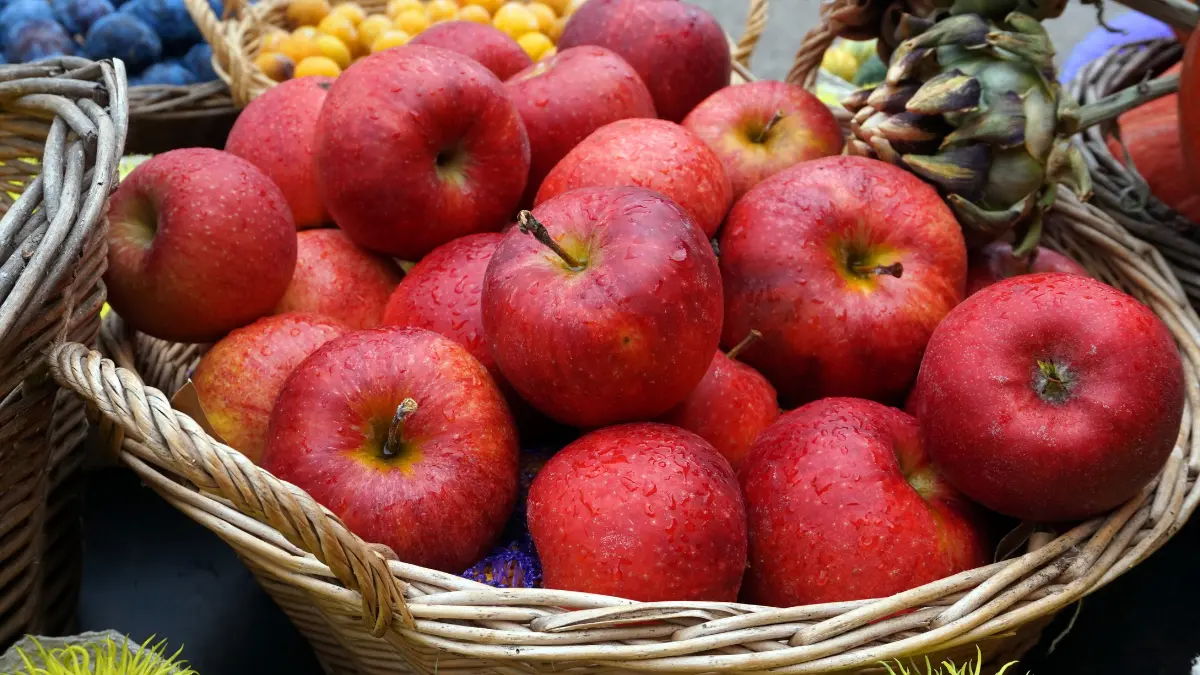A Complete Guide to Apple Fruit Imports in India
India is one of the biggest Apple consumers in the world, which often requires crossing domestic production. In order to accommodate this growing demand, apples from major global producers such as the United States, Turkey, China, Iran and Italy are imported. For companies entering the Apple Import trade, it is necessary to understand the requirements for license, logistics and compliance that control fruit imports in India.
What Licenses Are Required to Import Fruits into India?
Before importing apples into India, traders should follow several government regulations. The following licenses and registration are compulsory:
- Importer Exporter Code (IEC)
- Issued by the Directorate General for external affairs (DGFT).
- This is a main requirement for anyone who operates with imports or exports in India.
2. FSSAI License (Food Safety and Standards Authority of India)
- Ensures that apples meet India’s food safety standards.
- Importers must register with FSSAI and receive a central license for trading in food products.
3. APEDA Registration (Agricultural and Processed Food Products Export Development Authority)
- Though Apeda is mainly related to export, importers often register to meet compliance and even coordination in agricultural produce trade.
4. Plant Quarantine NOC
- It is necessary to ensure that imported apples are free of pests and diseases.
- Issued under the Plant Quarantine (Regulation of Import into India) Order.
Together, these licenses ensure that high quality apples only when Indian consumers comply with national and international trade rules.
Logistics & Cold Storage Requirements for Apple Imports
Apple import includes sensitive control of the supply chain because fruit is perishable and exposed to getting worse when not being handled properly. Logistics and cold rooms are needed here:
1. Cold Chain Management
- To maintain freshness, apples should be stored at temperatures between 0 ° C to 4 ° C
- A controlled environment with regulated oxygen and carbon dioxide levels helps to expand shelf life.
2. Packaging
- Apples are usually packed with protective layers corrugated to avoid damage.
- Proper ventilation holes are provided to maintain air circulation during shipments.
3. Transportation
- Refer (refrigerated) containers are used for shipping.
- Large Indian ports such as Nhava Sheva (Mumbai), Mundra (Gujarat) and Chennai handle large volumes of Apple imports.
4. Distribution
- When the shipment reaches India, the apple is led to cold rooms before the wholesale markets and retailers are distributed.
- Efficient cold chain infrastructure is important to reduce post-harvest losses and ensure Apple reaches consumers to the best possible position.
Which Countries Supply the Most Apples to India?
India sources apples from many international markets to meet the demand for a year. Top suppliers include:
- USA – Known for Red Delicious, Gala, and Granny Smith apples.
- Turkey – A rapidly growing supplier offering competitively priced apples.
- China – Major supplier of Fuji apples to the Indian market.
- Iran – Supplies Red Delicious and Golden Delicious varieties.
- Italy – Renowned for premium quality apples such as Golden Delicious and Gala.
These countries play an important role in balanced India’s demand and supply, especially when the production of domestic apples is limited to the Himalayas states.
What Is the HS Code for Apple Fruit Imports?
The HS code (harmonized system code) is an internationally standardized system with names and numbers used to classify products made. For apples are HS code is:
- HS Code for Fresh Apples: 08081000
This code is used in all trade documentation, customs withdrawal and taxation goals. This ensures stability in global trade and helps importers to calculate duties and tariff rates used on Apple imports.
JK International – Your Trusted Apple Import Partner
When it comes to Apple imports, it is necessary to be a reliable companion. JK International Apple offers a wide range of import services, which helps companies a source of high quality apples from large global suppliers. With specialization in imports, customs withdrawals, cold rooms and logistics, JK International ensures a seamless process from the farm to the market.
Whether you are a wholesaler, retailer or distributor, JK International End-To-End provides Apple Import Solutions that guarantee freshness, quality and timely delivery.
Conclusion
Apple import in India is a growing commercial opportunity, but they require strict compliance with licenses, logistics and business norms. By obtaining the necessary permits, maintaining proper cold storage, and sourcing from trusted countries, importers can tap into India’s high apple demand.
With partners like JK International, business can simplify world -class apples to Indian consumers.
- Categories:
- All

